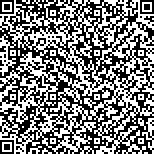Archive > Volume 42 Issue 10 > 2016,42(10):1256-1262. DOI:10.7519/j.issn.1000-0526.2016.10.010 Prev Next
Cold Air to the Cardiovascular System and Related Influence Factors of Natural Experiment Research
- Article
- Figures
- Metrics
- Preview PDF
- Reference
- Related
- Cited by
- Materials
Abstract:
The effects of cold air on cardiovascular disease were investigated in an experimental research examining blood pressure and biochemical indicators in humans. Zhangye City, Gansu Province was selected as the experimental site. After conducting health screening and blood tests, 30 cardiovascular disease patients and 40 healthy subjects were recruited as case and control groups, respectively. The experiment was performed during cold air exposure in 27-28 April 2013. Blood lipid, whole blood viscosity, cardiac troponin I, myoglobin (Mb), and endothelin1 in all subjects were evaluated 24 h before (morning of 26 April 2013), during the process (temperature dropped to the lowest in 07:00-08:00 BT 28 April 2013), and 24 h after cold exposure (morning of 29 April 2013). The variations in each biochemical indicator were analyzed before, during, and after the cold exposure. The results showed that cold air exposure increased the low and midst shear of whole blood viscosity and the low and high shear of whole blood reduced viscosity. This phenomenon led to excessive blood clotting and high aggregation and viscosity state in cardiovascular disease patients and healthy subjects. In addition, cold air exposure evidently increased serum triglyceride and very lowdensity lipoprotein cholesterol but decreased highdensity lipoprotein cholesterol and Apolipoprotein A1. These indicators caused blood viscosity, increasing cholesterol and platelet granules, which are deposited in the vascular wall, thus further aggravating atherosclerosis. During the cold air exposure, the concentration of vascular endothelin1 significantly increased. Moreover, Mb and cardiac troponin I gradually increased and caused vasoconstriction and damage to myocardial cells. The main conclusions are that the cold air can affect both cardiovascular disease patients and healthy subjects. Firstly, the effect of cold air can make excessive blood clotting and high aggregation and viscosity state, impacting the blood rheology. Secondly, the cold air can promote the occurrence and development of atherosclerosis. Thirdly, the cold air can vasoconstriction and damage to myocardial cells. In addition, the mechanism of the effect of cold air on cardiovascular disease risk factors in humans were also investigated from three aspects.
Keywords:
Project Supported:
Clc Number:


Mobile website









